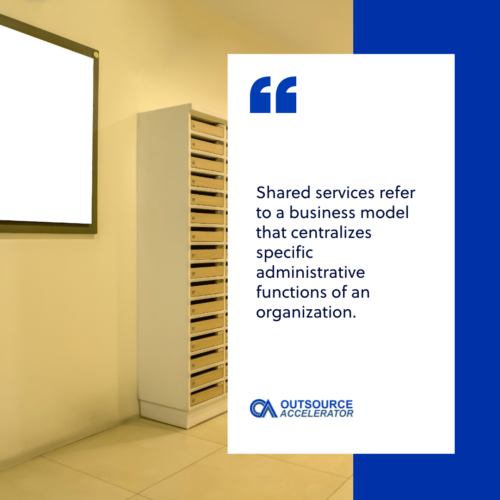Shared services best practices: Six unfailing key essentials

Indeed, organizations always have to seek better ways they can improve their products and services. But that doesn’t just stop there, businesses also need to continuously enhance their internal functions.
Moving forward, with businesses growth and expansion, it is inevitable to hire more people and invest more in resources. In some cases, financial resources often serve as one major impediment to a company’s development.
Through shared services, companies today can cut down on their costs while improving their internal processes. Many have yet to be aware of shared services best practices, and how it works.
Let’s walk you through the six key essentials of shared services best practices and its basic fundamentals.
What are shared services?
Shared services refer to a business model that centralizes specific administrative functions of an organization. These administrative functions are usually performed on separate divisions within the company or in different locations.
Some of the services that can be shared within various business units are inventory, finance, Information Technology (IT), hiring, payroll, and purchasing.
Shared services can also be applied when different business entities develop partnerships. One example of this is when two companies occupying one office building share maintenance or telecommunications services.
Another form of shared services can be acquired on the Internet. An example of this is Application Service Providers (ASPs). These providers offer their clients access to different online applications.
This helps clients disregard the need to purchase specific software and special systems.

Significance of shared services best practices
Technology plays an important role in the success of shared services. Thus, shared services best practices should be followed religiously to meet the requirements of every business model.
Back-office functions are mainly what encompasses shared services. For example, instead of having an Accounts Payable (AP) department for each business location or branch, a company can have global AP shared services.
Shared services best practice if done right helps promote the following:
Automation
As we have mentioned earlier, technology is the backbone of shared services. It lets organizations automate their operational processes.
Instead of spending additional costs on hiring, training, office space, and other resources, shared services help them avoid these additional expenses.
Centralization
Centralization is one great feature of shared services. Going back on the example about accounts payable, this allows companies to invest on economies of scale.
A business within a business
The business units that shared services cater to are called “customers”. These business units are typically charged according to the services they perform. Shared services are more cost-effective as compared to outsourcing.
Ultimately, shared services best practices, if done correctly, helps organizations continuously enhance and standardize their operational processes.
6 key essentials in terms of shared services best practices
As for companies that are looking to explore the path of shared services, consider these shared services best practices:
Scope
One of the first things you have to consider in terms of shared services best practices is the scope of the model. The scope encompasses which functions, processes, entities, regions, and locations to be included in the shared services.
Location
Moving to a centralized shared service center location can also result in economies of scale, better productivity, and cost savings. However, businesses should also ponder on several factors like time-zone, cultural and language differences.
Technology
Constant tech innovations are one crucial factor of shared services best practices. Technological advancements such as Robotic Process Automation (RPA) help take shared services to the next level.
RPA technology offers better accuracy, speed, standardization, and efficiency to specific high-volumes and repetitive rules-based tasks.

Costs
Location and costs go hand in hand in terms of shared services best practices. Organizations should consider the labor arbitrage savings compared to the costs of staff that will be transferred on shared services.
The supposed costs on the chosen location should also be included.
Roadmaps
Roadmap implementation is another essential key element of shared services best practices. Once the scope, location, and costs have been identified, a detailed roadmap should be laid out.
Implementation roadmap lets companies determine the overall cost of execution, including professional. Especially if they prefer to acquire third-party services in terms of migration, design model, or documentation.
A roadmap will also help in terms of the correct timing, specifically if an organization’s scope of shared services includes migrating into several locations.
Investments and tax considerations
Initial investments and tax considerations are also vital to shared services best practices. Speaking of investments, besides labor costs companies should take into consideration: Travel costs, hardware and enabling technologies, and office leasehold improvements.
Withholding Taxes (WHT) is often one of the main issues in locating shared services. As for withholding taxes themselves, they will vary depending on the location of shared services and the flow of invoices.
Organizations that can follow these shared services best practices will have a better chance of exploring shared services!







 Independent
Independent




